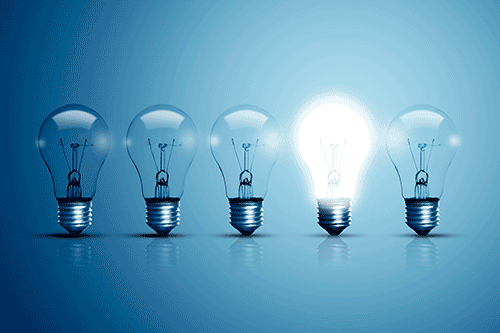Introduction
So, you’ve been introduced to the concept of electric charges and electricity. You also know that it is the electric current running through wires in your house that allows you to turn on lights and other electric devices, but how do these devices affect the electric current?

These types of devices have some level of resistance – meaning they resist the flow of electrons and convert the flow of electrons into other types of energy.
In this lesson, you will learn how resistors affect electric current and use mathematical equations to calculate resistance, current, and voltage using Ohm’s Law. Begin by watching this GPB Segment F: Ohm's Law (6:03).
| Lesson Objectives |
|
Following successful completion of this lesson, students will be able to...
Enduring Understandings
The above objectives correspond with the Alabama Course of Study: Physical Science standards: 10. |
